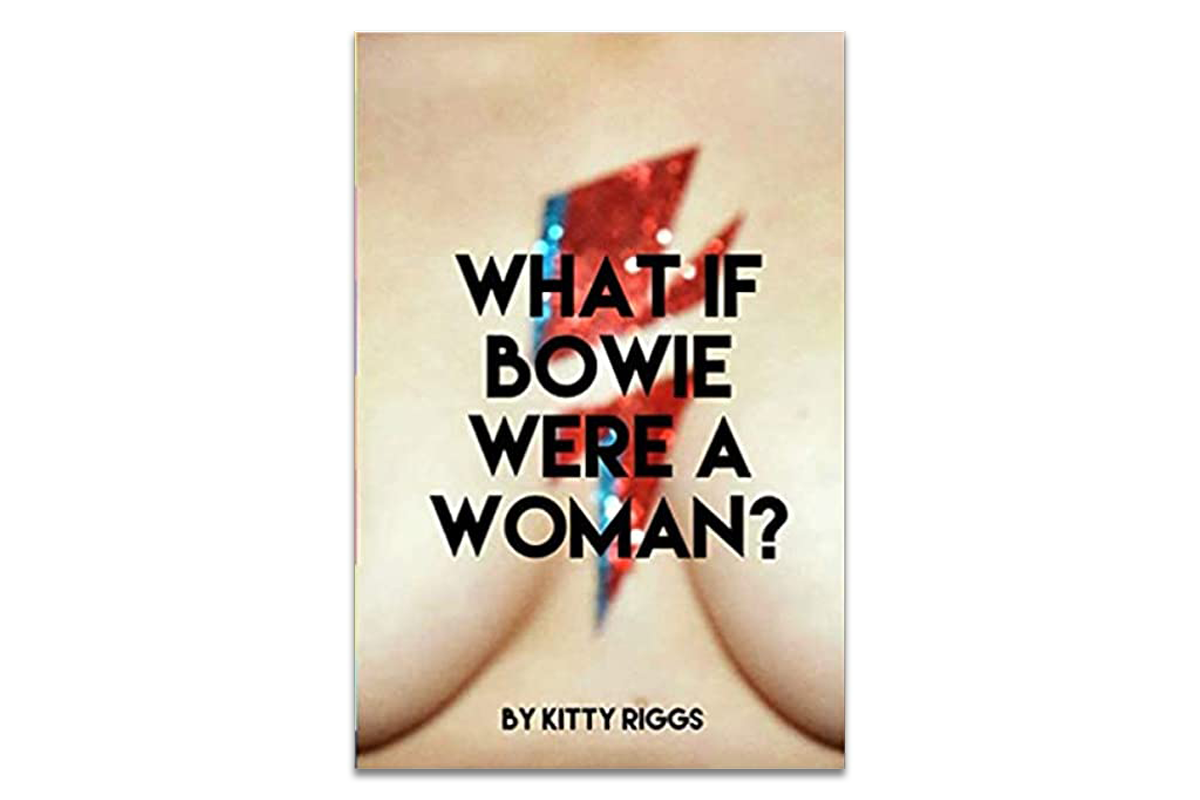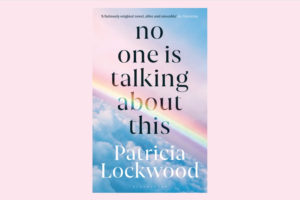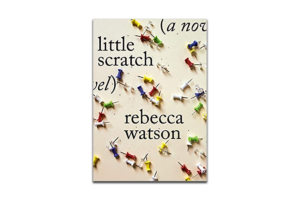“Warning: This Book Contains A Successful Woman”
As someone who saw following David Bowie as a religion, and sees themselves as a pretty good feminist, I can’t believe that I’ve never pondered what reality we would be in if David Bowie were a woman.
Yet, Kitty Riggs perpetuates this thought-provoking question, inspired by the question asked by her father, in her first published novel: ‘What If Bowie Were A Woman?’ (WIBWAW) The novel is both gripping and intriguing, if not a little bit wacky. But then, so was David Bowie, which ultimately means so is the protagonist, Penny Jones.
Sprinkled with witty one-liners, Bowie references and links to other famous musicians from the time, Riggs portrays what life could have been like if Bowie were female. She delves into the hardships of being taken seriously in the music industry, and the struggles that women face when working on tours and in venues. She explores the sleazy bookers and managers, the flurry of abuse, but most importantly: the mantra of ‘look out for your fellow female!’
The debut novel takes us through Penny’s life, from childhood, to fame, to old age. Opening with a scene from a drug-fuelled Marc Bolan party, we read Penny’s thoughts – “I’m blind pissed, stoned and stark-bollock naked, wailing about cross-dressing pigeons.” This is pretty tame language compared to the rest of the novel, but there is no curse word placed that is not necessary or demanded from the situations Penny finds herself in. She is an instantly likeable character and Kitty writes her whirling thoughts with wry hilarity, poking fun at male encounters whilst determined to dismantle the patriarchy. Whilst Riggs states that Bowie and Penny are ‘entirely separate beings,’ her ‘Bowie-research’ occurred to ‘know more about him as a person; his character, his flaws, the way he spoke, what he wore, how he thought’ and project this into Penny.
Without wanting to give too much away, Penny’s life is hard. Hard because she is a woman who enjoys being outrageous and androgynous who wants to use her talents to be a rock star. It is hard to not think of the music industry now and the misogyny that still ensues. There were times in WIBWAW that I was transported back to the days when Taylor Swift was known more for her love life than her talent, shown recently with the ‘deeply sexist’ joke used at Swift’s expense on the Netflix show Ginny & Georgia. To Penny, the papers write about and objectify her body, whilst her male drummer gets a glowing review. This has happened all too often to females in the public eye, with Riggs telling Safe & Sound:
“We’re all so fucking brainwashed to our own mistreatment. Lack of chances given to women; the sex appeal image forced upon so many talented women; the horrifying sexual, verbal, physical and emotional abuse women face from their ‘teams.’ The list goes fucking on, and it breaks my heart.“
Throughout the book, women’s issues within and outside of the music industry are regularly addressed; issues such as abortion, rape and the mental trauma that can prevail from such events. Penny is written as a bold and daring feminist, who winds up in some completely bonkers situations with her dear friend Molly Jagger. However, the writing changes when such issues occur throughout her life, making Penny undeniably human, and wakes the reader up to the issues women dealt (and still have to deal) with.
Yet, the extraordinary bond between the female characters and their desire to help other fellow women fight sexism is heart-warming. This is the main difference between Bowie and Penny – whilst Bowie carried on creating music, Penny uses her struggle and endless fight to help raise up others, hearing the voices of women who want to make it in a man’s world.
What is so interesting and different about this novel, is the almost-but-not-quite reality the reader finds themselves in. Sprinkled with real characters such as Marc Bolan, Keith Richards and the amazing bus driver Julian How, to the characters of Molly Jagger (Mick Jagger), Iggy Rock (Iggy Pop) and Penny Jones (David Bowie). It demonstrates the exploration of gender and womanhood throughout. By the end, you are reading a feminist manifesto that calls in to question all of the misogyny within the music industry, society and the world. Penny speaks of the tireless fight with ‘the sexism monster’ all her life, only to succeed in overcoming it, to then be hit with the ‘ageism monster.’ This is the monster that older women appear to turn into, which the media don’t take kindly to.
Do not come to this book thinking you will be reading a biography of David Bowie’s life, with the only difference being that the pronouns are changed to she/her. The plot is more complex and the picture is much bigger than that. The songs, albums and personas may be the same, but their lives are completely different, due to the outrageous misogyny and patronisation women faced.
Riggs stated to Safe and Sound: “I wanted to write a book that explored womanhood, and what it’s like to be a woman in a man’s world” and her first debut novel achieves this in a fierce and fantastical fashion.
If you purchase books linked on Safe and Sound, we may earn a commission from Bookshop.org, whose fees support independent bookshops.


